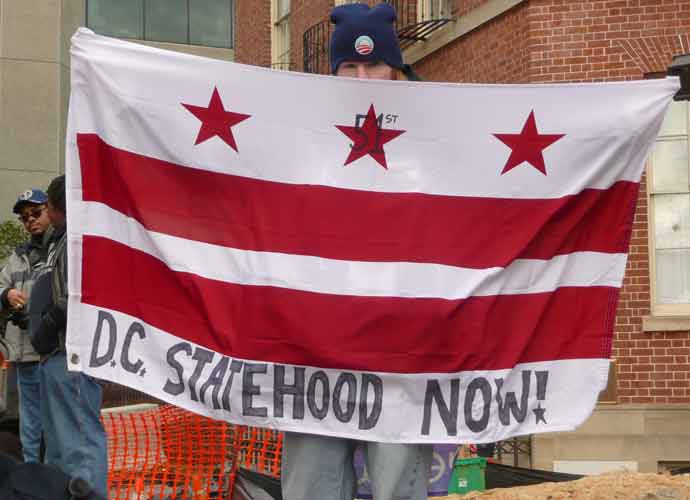Debate On D.C. Statehood Starts With Contentious House Hearing
The approximately 700,000 residents of the District of Columbia do not have Congressional representation like all other Americans. While D.C. statehood has been debated several times in recent years, new congressional hearings this week show that the debate will be extremely contentious.
“Congress can no longer allow D.C. residents to be sidelined in the democratic process, watching as Congress votes on matters that affect the nation with no say of their own, or watching as Congress votes to overturn the laws of the duly elected D.C. Council with no say of their own,” Rep. Eleanor Holmes Norton (D-D.C.) argued on the House floor on Monday. “Full democracy requires much more.” Norton is D.C.’s single House representatives but is barred from voting in session.
The House Oversight and Reform Committee had a long-form debate on the prospect of D.C. statehood where representatives like Norton argued for fair representation for D.C.’s residents who have less say in their own governing compared to states. Republicans, however, are weary to give D.C. statehood because District residents are strongly liberal.
“Today’s hearing is all about creating two new Democratic Senate seats,” the panel’s ranking member, Rep. James Comer (R-Kentucky), said in his opening statement in the hearing. “D.C. statehood is actually plan B of the Democrat political power grab. Plan A was to eliminate the filibuster in the Senate.”
Subscribe to our free weekly newsletter!
A week of political news in your in-box.
We find the news you need to know, so you don't have to.
H.R. 51, the bill giving D.C. statehood would reduce the size of the federal Capitol district. The National Mall, monuments, White House and other federal buildings would become the new Capitol and the rest of the former district would become a state. Lawyers, however, argue that the proposal violates the 23rd Amendment of the Constitution, which originally gave D.C. its electoral votes for presidential races.
“Although H.R. 51 provides for expedited consideration of a constitutional amendment to repeal the 23rd Amendment, that cannot be effectuated by simple legislation and requires the votes of three-fourths of the states to ratify the new constitutional amendment,” Mainon Schwartz, a legislative attorney for the Congressional Research Service, said in the House debate.
Get the most-revealing celebrity conversations with the uInterview podcast!






Leave a comment